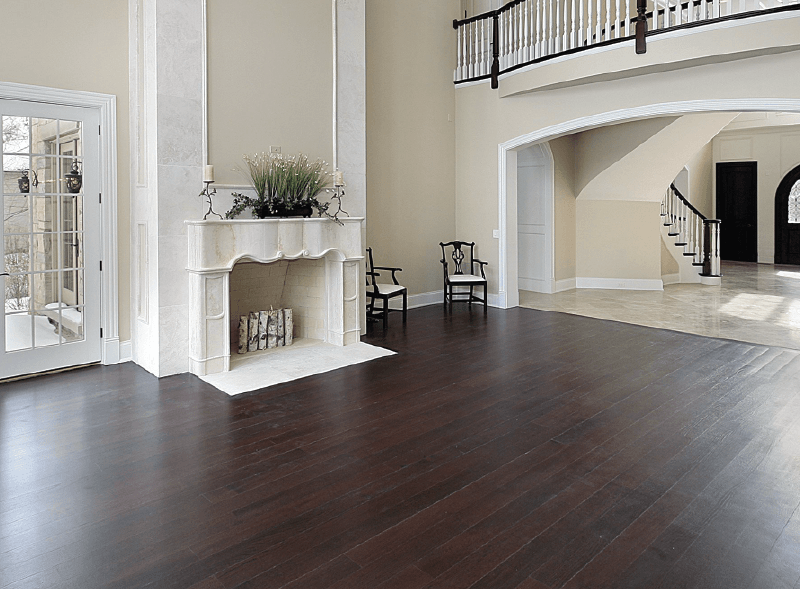Which Hardwood Floor Is Most Scratch Resistant? A Cincinnati Buyer’s Guide
When you're choosing hardwood flooring, it’s not just about finding the right color or wood grain—you also want something that can stand up to real life. Whether you have pets, kids, heavy furniture, or all of the above, one of the top questions we hear at Cincy Preferred Flooring is: Which hardwood floor is most scratch resistant?
Scratches happen. The good news is that some wood species and finishes are better equipped to withstand daily wear than others. In this guide, we’ll break down which types of hardwood are the most durable, what affects scratch resistance, and how to choose the best option for your lifestyle.
What Makes a Hardwood Floor Scratch Resistant?
Before diving into the top-performing wood types, it helps to understand what contributes to scratch resistance. A few key factors determine how well your hardwood will hold up over time:
1. Wood Species Hardness
The hardness of a wood species is measured using the Janka hardness scale, which tests the resistance of the wood to denting and wear. The higher the Janka score, the harder—and more scratch-resistant—the wood.
2. Finish and Top Coat
Even a hardwood species can scratch if the finish isn’t up to par. Many manufacturers now use advanced polyurethane or aluminum oxide finishes that add an extra layer of protection. These finishes help resist not just scratches, but also stains and general wear.
3. Texture and Sheen
Matte and hand-scraped finishes are better at hiding small scratches compared to high-gloss floors, which show imperfections more easily. A little texture can go a long way in keeping your floors looking great between cleanings.
Which Hardwood Floor Is Most Scratch Resistant?
Here’s a list of some of the best options if you’re prioritizing scratch resistance:
1. Hickory
Why it works: Hickory is one of the hardest domestic woods available, with a Janka rating of 1,820. It has a tight grain and natural variation, which helps camouflage minor scuffs and scratches. It’s ideal for high-traffic areas and homes with pets or kids.
Best for: Busy households, entryways, open-plan living areas.
2. Maple
Why it works: Maple is dense and durable, with a Janka rating of around 1,450. It’s commonly used in basketball courts, so you know it can take a beating. However, it does have a subtle grain pattern, which can make scratches slightly more noticeable if the finish is damaged.
Best suited for: Modern spaces that require a clean, light aesthetic.
3. White Oak
Why it works: White oak is extremely popular, and for good reason. It has a Janka score of 1,360 and a strong grain pattern that helps mask surface marks. Plus, it takes stain beautifully, making it one of the most versatile flooring choices.
Best for: Traditional and transitional interiors where durability meets style.
4. Red Oak
Why it works: With a slightly lower Janka score (1,290), red oak is still a solid contender. It’s widely available, affordable, and has a bold grain that helps disguise scratches. Paired with the right finish, it can withstand normal household use well.
Best for: Budget-conscious homeowners who still want solid performance.
5. Brazilian Cherry (Jatoba)
Why it works: This exotic wood scores a whopping 2,350 on the Janka scale, making it one of the hardest flooring options available. Its rich color and incredible durability make it ideal for homes that need something extra tough.
Best for: High-end homes or luxury remodels where both performance and appearance are paramount.
Engineered Hardwood: A Scratch-Resistant Alternative?
Many homeowners are turning to engineered hardwood for even greater scratch resistance. These floors feature a hardwood veneer over a layered core and are often finished with durable, factory-applied coatings, such as aluminum oxide.
Some engineered products also come with textured finishes that help disguise small imperfections, making them especially useful in homes with active pets or children. While engineered wood won't be as sandable as solid wood, it’s a fantastic choice if you want long-lasting looks with lower maintenance.

The Role of Finish in Scratch Resistance
If you’re wondering which hardwood floor is most scratch resistant, you should also be asking: what kind of finish does it have? There are three common finish types:
1. Aluminum Oxide
Extremely durable and common in prefinished floors, aluminum oxide coatings can last 25 years or more. They offer excellent scratch resistance and are ideal for high-use spaces.
2. Polyurethane (Oil- or Water-Based)
Both types offer a smooth, protective layer, but water-based polyurethane tends to be harder and more scratch-resistant. Oil-based finishes are softer and more traditional but may show scratches sooner.
3. Natural Oil Finishes
These penetrate the wood rather than sitting on top, giving a more natural appearance. While easier to repair, they offer less protection against surface scratches.
At Cincy Preferred Flooring, we’ll walk you through the pros and cons of each finish and help you choose one that matches your needs and expectations.
Tips to Keep Your Hardwood Floors Looking Great
Even the most scratch-resistant hardwood isn’t indestructible. Here are a few practical tips to minimize wear:
- Use felt pads under furniture legs
- Place rugs in high-traffic areas and entryways
- Trim pet nails regularly
- Clean regularly using microfiber dust mops (avoid abrasive tools)
- Avoid high heels and heavy, sharp objects that can dent the wood
- Wipe up spills immediately to prevent staining or damage to the finish
With the right care, even moderate-durability hardwood can look beautiful for decades.
Hardwood vs. Other Scratch-Resistant Flooring Options
If you’re still unsure about wood, here are a few other scratch-resistant flooring types to consider:
- Luxury Vinyl Plank (LVP): Waterproof, extremely durable, and ideal for families with pets.
- Laminate Flooring: Tough top wear layer, but not as moisture-resistant as LVP.
- Tile: Virtually scratch-proof but can be cold and hard underfoot.
Still, many homeowners prefer hardwood for its natural beauty, warmth, and resale value, even if it requires a little more maintenance.
So, Which Hardwood Floor Is Most Scratch Resistant?
If you’re looking for the most scratch-resistant hardwood floor available, hickory and Brazilian cherry top the list in terms of pure hardness. White oak offers an ideal balance of strength, style, and scratch-resistant grain, while engineered hardwood with a high-performance finish adds an extra layer of protection.
At Cincy Preferred Flooring, we help you weigh all these variables so you can choose the best option for your home, not just the hardest wood, but the one that suits your space, traffic levels, and lifestyle.
Let Us Help You Find the Right Floor
Choosing the right hardwood is about more than durability. It’s about finding the perfect balance of style, function, and performance for your everyday life.
Whether you’re remodeling a single room or upgrading your entire home, Cincy Preferred Flooring offers personalized service, expert installation, and a wide selection of solid and engineered hardwoods—many with scratch-resistant finishes designed for modern living.
Contact us today to schedule a free in-home consultation. We proudly serve homeowners across Cincinnati, Mason, Loveland, and West Chester—and we’re here to help you find flooring you’ll love for years to come.


